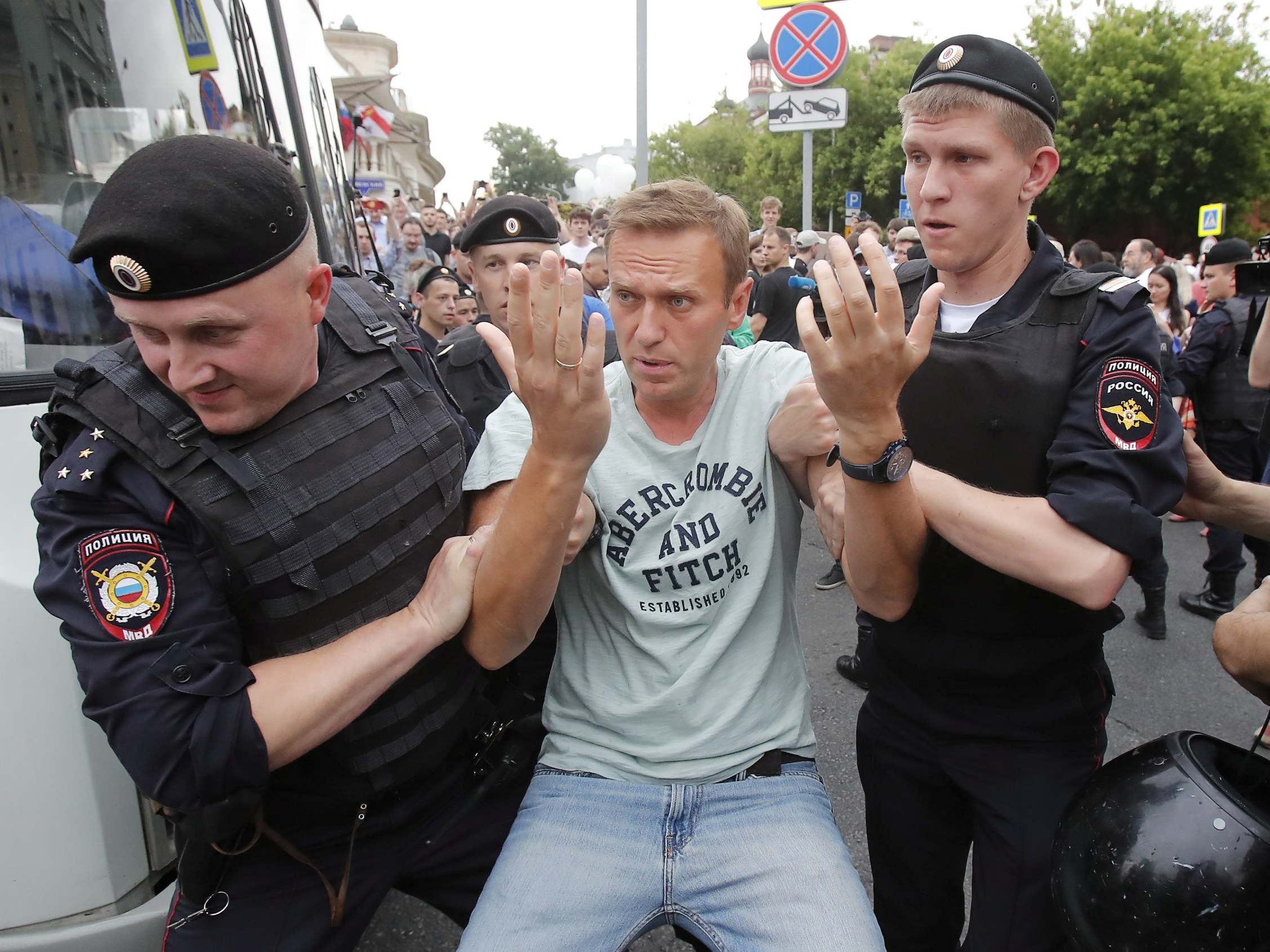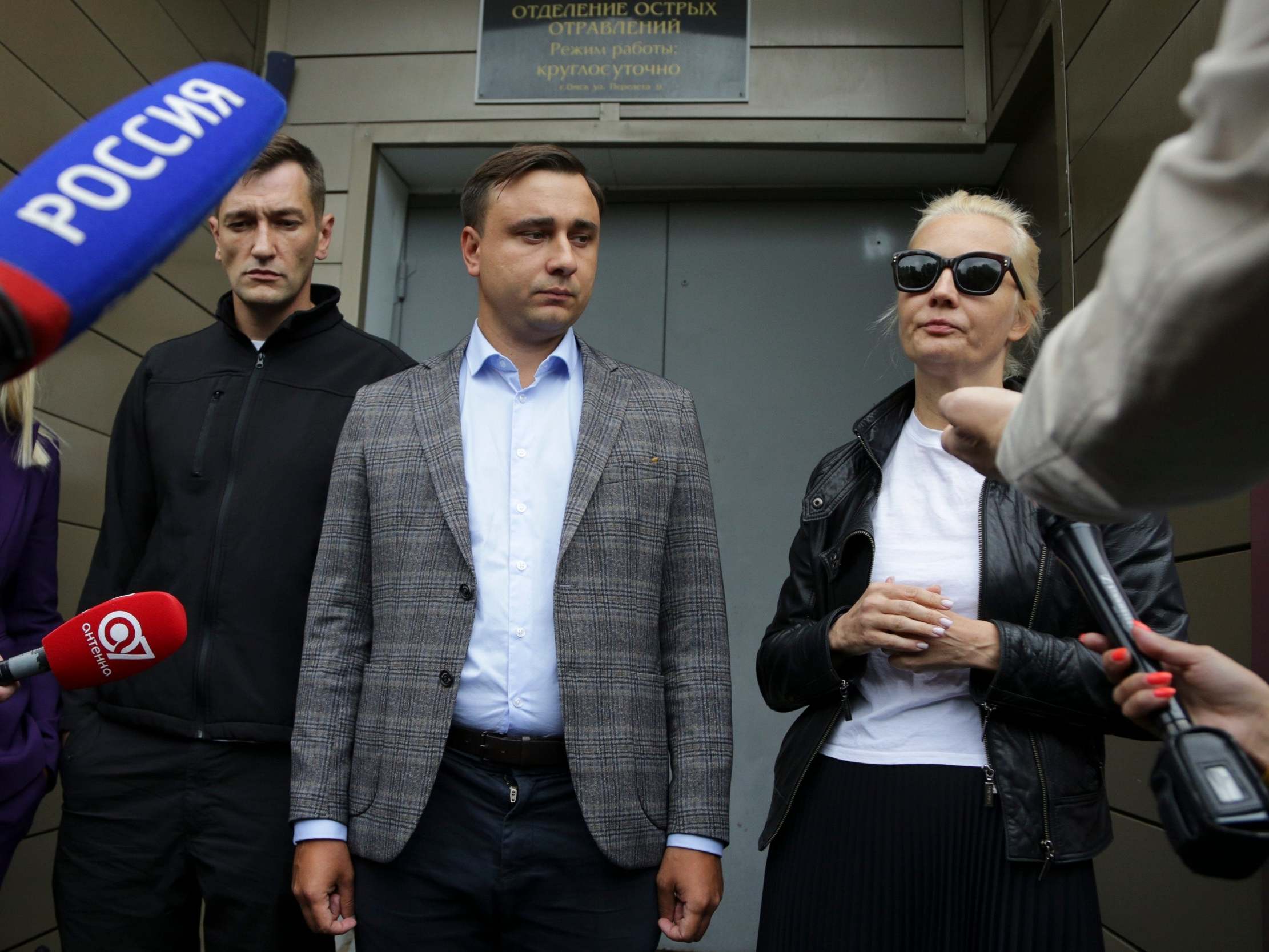Alexei Navalny: Who is the Russian activist – and why is he a threat to Vladimir Putin?
Lawyer in coma after suspected poisoning told The Independent in 2017: ‘Ask Putin why I’m not dead’
Alexei Navalny is fighting for his life in a Siberian hospital on after drinking tea that his allies believe was laced with poison.
If confirmed, it would be the latest in a long series of suspected poisonings of political figures who have fallen out with the Kremlin – which continues to deny settling scores with its foes by murdering them.
Mr Navalny, a 44-year-old lawyer and anti-corruption activist, has become the leading figurehead for the opposition against Vladimir Putin in Russia, organising anti-Kremlin protests and serving several stints in jail.
Who is Navalny and what has he done to annoy Putin?
The fierce Putin critic first came to prominence as blogger in 2010, publishing investigations into corruption in Russia, with his videos garnering millions of views online.
This campaign against corporate corruption saw Navalny turn his criticism also directly to the government and Mr Putin’s ruling political party, United Russia – calling them “crooks and thieves”.
He played a leading role in organising anti-Putin demonstrations attended by hundreds of thousands of people between 2011 and 2013.
Does Navalny have a political party of his own?
In 2013, Mr Navalny became leader of the newly-formed Progress Party set up by his allies. He came second in that year’s Moscow mayoral election, claiming only electoral fraud had stopped him from winning.
His party is neither obviously left nor right-wing – campaigning on pro-democracy issues such as establishing independence for the Russian judiciary and prohibiting the government from owning media outlets.
He was barred from standing against Mr Putin in the run-up to the 2018 presidential election, declared ineligible because of a corruption conviction.

Has Navalny been to jail?
In 2013 Mr Navalny was found guilty of embezzlement and sentenced to prison, but he was released the next day however after thousands protested in the streets of Moscow.
The verdict was initially overturned by the European Court of Human Rights (ECHR) – which said he wasn’t given a fair hearing – but was given exactly the same five-year suspended sentence in 2017.
In 2014 he was put under house arrest following embezzlement and money laundering charges. He also spent short spells in jailed in 2017 and 2019 after calling for unsanctioned protests.
Is Navalny popular in Russia?
He has a dedicated base of support within Russia’s middle classes, developing a grassroots base of pro-democracy activists through his years of anti-corruption activism.
Mr Navalny has been attacked several times by supporters of the government, and was taken to hospital in 2017 after an antiseptic green dye was splashed on his face in Moscow.
In an interview with The Independent in 2017 he described the Kremlin as a “master of the art” of media manipulation, and claimed it had been “feeding” the western media hype about US election interference. “They think it is cool,” he said.
Mr Navalny also said journalists always ask why he has not been killed. “I don’t know the answer to that question: Ask Putin why I’m not dead.”

What happens to him next?
Mr Navalny remains in a medically-induced coma after falling ill on a plane, forcing an emergency landing in the Siberian city of Omsk.
Russian doctors in Omsk have so far refused to authorise the transfer of Mr Navalny to a German hospital. A senior clinician treating him said on Friday that they do not believe he was poisoned, but the hospital’s chief clinician later stated that doctors had only “working diagnoses”.
Mr Navalny and his allies had been in the city of Tomsk to try to increase support for candidates they back in next month’s regional elections in Russia. The election campaign incident coincides with a political crisis in Belarus, a close Russian ally.
“Putin is scared,” an EU diplomat, who declined to be named, told Reuters. “He is sending a message to his own people not to try do at home what they see on TV from Belarus.”
Join our commenting forum
Join thought-provoking conversations, follow other Independent readers and see their replies
Comments
Bookmark popover
Removed from bookmarks